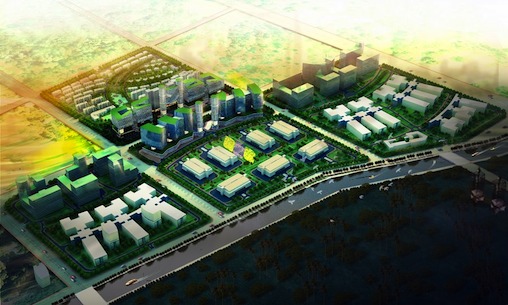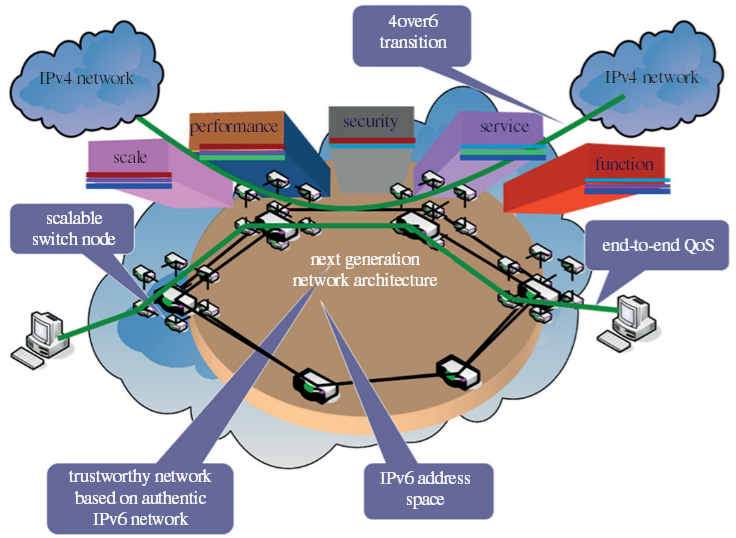China’s next-generation Internet is a world-beater
March 12, 2013

Artist rendering of city-sized cloud computing and office complex being built in China (IBM)
An open-access report published in the Philosophical Transactions of the Royal Society last week details China’s advances in creating a next-generation Internet that is on a national level and on a larger scale than anything in the West, New Scientist reports.
At the root of the problem are “two major gaps in the architecture of the Internet”, according to a report from the New England Complex Systems Institute, compiled in 2008 for the U.S. Navy and released to the public this week.
Inability to block malicious traffic as a whole.
China is already coming up with better defences. One of the most important aspects of its next-generation backbone is a security feature known as Source Address Validation Architecture (SAVA). Many of the existing security problems stem from an inability to authenticate IP addresses of computers that try to connect to your network. SAVA fixes this by adding checkpoints across the network. These build up a database of trusted computers matched up with their IP addresses. Packets of data will be blocked if the computer and IP address don’t match.
The Internet is running out of room.

Multi-dimensional, scalable, next-generation Internet architecture (QoS = quality of service) (credit: Ying Liu et al./ Phil. Trans. R. Soc. A)
The current standard for assigning space to computers — known as Internet Protocol Version Four (IPv4) — uses a numbering system which has just under 4.3 billion possible spaces. Internet engineers have been working on the new standard for years. It is called IPv6 and will boost the number of available internet slots by a mind-boggling 80,000 trillion trillion times. But progress on IPv6 has been painfully slow, and time is running out. IPv4 slots are due to run out in multiple regions around the world this year.
“China has a national internet backbone in place that operates under IPv6 as the native network protocol,” says Donald Riley, an information systems specialist at the University of Maryland, who also chairs the Chinese American Network Symposium.. “We have nothing like that in the US.”
China is already running next-generation services.
Internet service provider 3TNet provides television over IPv6, streaming programs in high definition. It is the basis for a system that monitors and controls traffic flow over the Internet and provides remote medical services — even long-distance, real-time violin lessons in high definition. All have the potential to reach more people at higher speeds than any equivalent service on the old Internet.